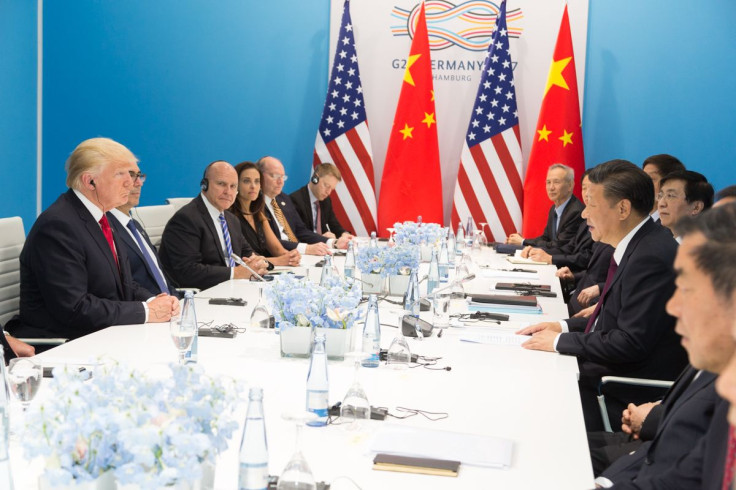Mistrust For China Grows: More US Consumers To Shun Made-In-China Products, Finds Survey

KEY POINTS
- A Deutsche Bank survey says 41% of Americans won't buy Made in China products
- Another survey says 78% of Americans will patronize brands manufacturing outside China
- The surveys indicate a rising support for Trump's positions on China
A rising number of U.S. consumers say they will shun Made-in-China products, showing a growing mistrust for China amid the coronavirus pandemic, a survey from Deutsche Bank showed.
A separate survey also revealed that an astounding majority of American consumers will pay more for products from companies moving their manufacturing out of China.
The first survey, from dbDig, Deutsche Bank's big data platform, found that 41% of Americans will no longer buy products made in China. Interestingly, the survey also showed the growing distrust was mutual, with 35% of Chinese saying they will shun Made-in-USA brands.
The second survey, from FTI Consulting in Washington, showed that 78% of Americans were willing to pay more for products if a company had moved its mmanufacturing out of China. The survey also found that 55% said that China cannot be trusted to uphold its commitments on the phase one trade deal it signed with the U.S. in January.
U.S. President Donald Trump has been pushing to decouple the economies of the world's two largest economies, even suggesting tax breaks to incentivize companies to pull their supply chains and manufacturing out of China and into the U.S. Most of the world's manufacturing is now concentrated in China because of the huge cost advantage and companies making everything from cars to cellphones have their supply chains in the country.
"As nations emerge from the crisis, and with nationalism on the rise, a growing averseness to globalisation seems to be occurring," Deutsche Bank analyst Apjit Walia wrote in his report. "Tempers and emotions are running high in both populations and the politicians know this very well, making the matter more complicated as it is an election year in the US."
Trump has blamed China for not alerting the world to the pandemic in time for it to prepare better and to implement travel restricitons. Beijing is also accused of silencing whistleblowers, suppressing information and even pressurizing the World Health Organization from declaring the coronavirus outbreak a pandemic quicker that it did. Unverified reports have said the virus escaped from a laboratory in Wuhan.
Trump has stoked the misstrust for China amid criticism of the slowness of his response to the pandemic that threatens to ruin is reelection chances in November. He has said it might be time to stop relying on China for manufacturing and build self-contained supply chains in the U.S. That message resonates with Trump's support base, which has received his Make America Great Again slogan.
"These stupid supply chains that are all over the world, we have a supply chain where they're made in all different parts of the world and one little piece of the world goes bad and the whole thing is messed up,” Trump said during a Fox Business interview. “I said we shouldn't have supply chains. We should have them all in the United States. We have the companies to do it and if we don't, we can do that."
Analysts say the souring U.S.-China relationship could swing votes in the November presidential elections. "As candidates compete over who can adopt a more extreme stance toward China between now and November, their post-election policies toward Beijing are increasingly being set in stone," Chad Brown from the Peterson Institute for International Economics told Bloomberg.
Meanwhile, a state-operated Chinese newspaper responded to Trump’s statements about cutting ties with China. The Global Times said in an editorial that this is a by-product of envy, panic and the "proverbial anxiety that the U.S. has suffered from since China began its global ascension."
© Copyright IBTimes 2025. All rights reserved.





















